- Bernard Preston homepage
- Olives
- Easy Spicy Olives
Easy spicy olives
Easy spicy olives can be prepared in just ten minutes.
Olives and their oil have an important role to play in our dietary regime; one way or another they should be on the salad platter every day. Whilst there is much argument between scientists about good and bad fats, everyone agrees that the fruit mono-unsaturated lipids are top notch; avocados too.
There are two ways to enjoy them; each has his or her own preference. I like olives before they have been pickled in vinegar.
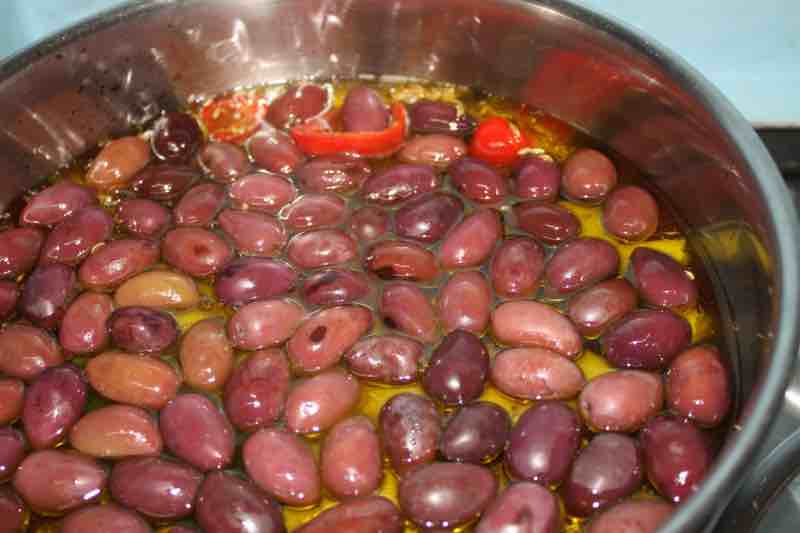
Ingredients
- 500g of olives
- 1 tsp of fennel-seeds
- 3 bay-leaves
- Zest of one lemon
- 1 tsp lemon juice
- 1 peppadew including the seeds or a slither of chili
- 1/2 cup of olive-oil
Go for it
- Soak the olives in unchlorinated water overnight to remove some of the salt and vinegar.
- Roast the fennel-seeds for 3 minutes.
- Add the rest of the ingredients and warm gently for a few more minutes.
Some folk would add garlic but for no good reason I am not partial to it in olives; I would rather have it in the hummus or one of the other Mediterranean side-dishes.
Olives are very high in salt[4]. I know because I pickle them myself[1]. If you eat out a lot then I recommend you soak them first, otherwise it doesn't really matter.
Never use preserved lemon-juice by the way. It is simply awful; rather go without.
"In a prospective cohort study of 92 383 adults observed over nearly thirty years, the consumption of more than 7 g/d (1.5tsp) of olive oil was associated with a 28% lower risk of dementia-related death compared with never or rarely consuming olive oil, irrespective of diet quality."
- JAMA open network
The traditional Greek way would be to mop up the remaining oil on your plate with bread. We can learn from the Blue Zone people on the island of Ikaría where they use only sourdough made mainly with unrefined wholemeal flour[2]. Living to a zesty and vigorous ninety-plus is the norm.
Did you know that with a little practice and a bread-machine you can prepare the dough in less than ten minutes? Then of course you have to wait patiently for five hours for the most divine loaf in the world.
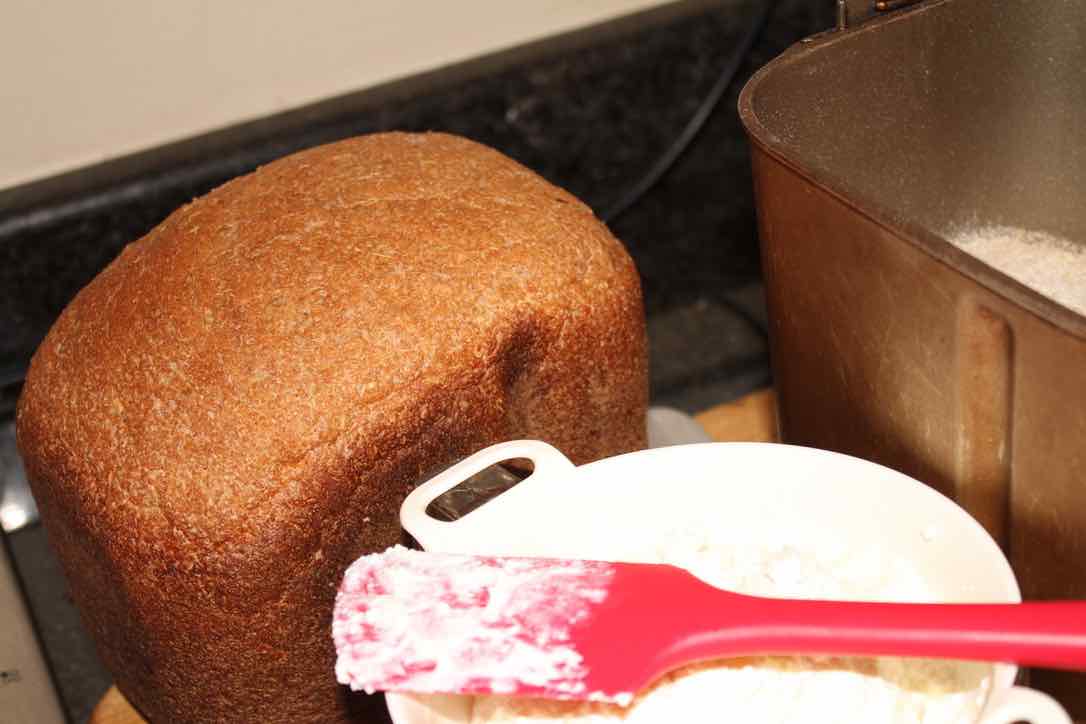
We stumbled on this interesting way to make a sourdough loaf; using kefir[3] to ferment the bread.
There is an amazing synergy of green living once you get into this alternate lifestyle; who would ever have thought of using a probiotic to provide the yeast and bacteria to ferment your dough?
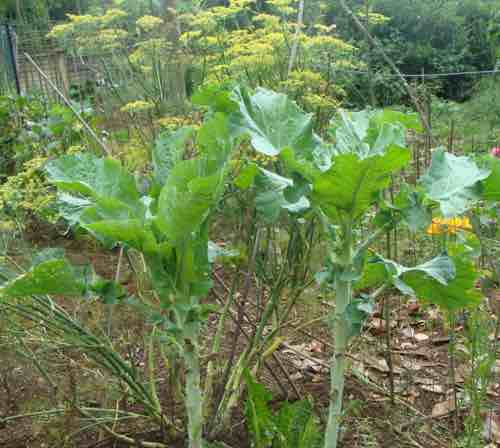 Fennel in flower behind the kale
Fennel in flower behind the kaleThere will almost certainly be some of the spicy-oil left over; simply add more olives and warm the whole lot again. Unless your guests adored your artisan bread and mopped up all the juice.
Fennel incidentally is not a difficult vegetable to grow; allow some of it to go to flower and then you will have plenty of seeds. There is one difficulty; the moles love the herb even more than we do. So plant it in the plastic gauze bags that citrus and onions are often sold in.
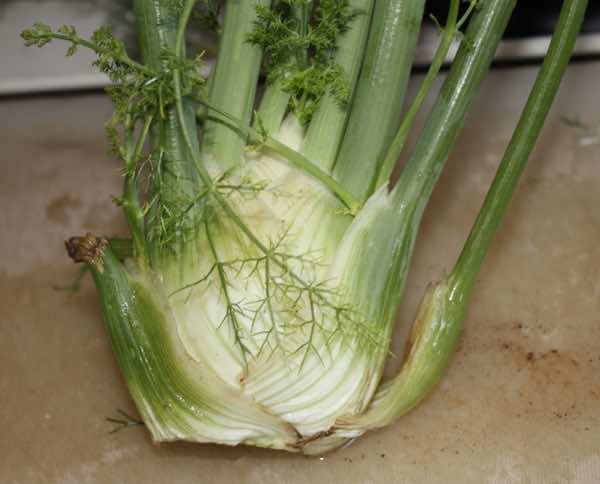
Pitting olives
Do warn your guests about the pits; they have broken many a tooth of those not accustomed to enjoying olives the right way.
You may want to give a little demonstration on how to pit olives if some are anxious; really it's just about mindfulness and taking time to savour our meals. So often we shovel our food down, completely unaware of the subtle flavours; and chewing everything thoroughly.
What is emulsifier in food?
When purchasing dishes with olive oil make sure there is some floating on the top. Manufacturers love to add chemicals to their products. Emulsifiers in food have been strongly associated with malignant breast and prostate tumours.
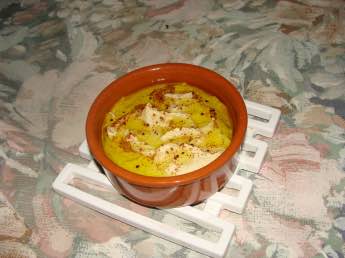 Hummus with olive oil floating at the surface
Hummus with olive oil floating at the surfaceEasy spicy olives
Easy spicy olives need just fennel seeds and bay leaves to make up a delicious side-dish to go with any green salad or cheese platter.
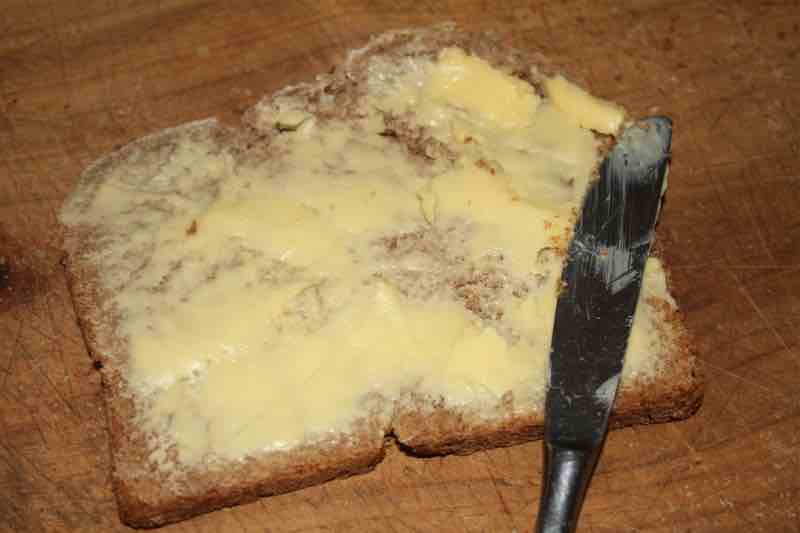 100% meal used to make sourdough bread
100% meal used to make sourdough breadWeight loss
There is today the most serious pandemic of obesity associated with modern grocery store food; and as we all know, though we keep trying, diets simply don't work. Even the best do not deliver because they are not sustainable. Can you really give up bread for ever? Luckily you do not need to once you discover the joys of sourdough and true wholemeal. It may mean buying a mill.
So here's the choice; buy a mill for true wholegrain flour, bake your own sourdough and kiss diets goodbye for ever. And enjoy the best bread in the world without guilt.
The very worst scientists declare is repeated loss and regaining of weight through dieting; it's better not to start in the first place.
And forget these new GLP-1 agonist drugs; they are extremely expensive and you have to take them for life or you will simply regain the weight.
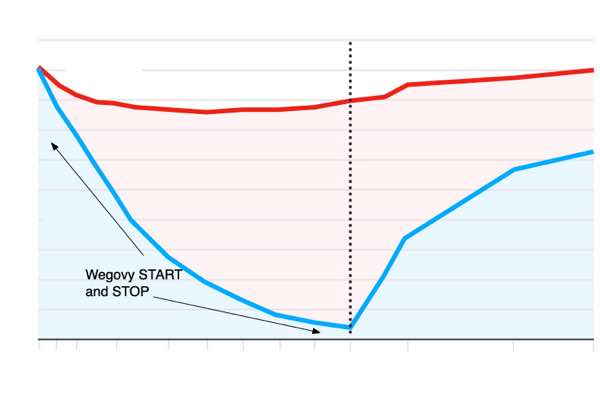 What happens when you stop taking Wegovy
What happens when you stop taking WegovyInstead one at a time start to quit all refined carbs for life; begin with that which you would find easiest, perhaps white rice or pasta. The final step is sugar too must go; six or less teaspoons per day.
These easy spicy olives are a perfect fit; high in the natural fruit oils.
- Bernie's scientifically-proven weight loss program; it is not a diet.
Ten percent
Roughly 10% of olives are enjoyed as the whole fruit; the rest of them are cold-pressed into oil.
When browsing use right click and "Open Link in New Tab" or you may get a bad gateway signal.
Newsletter
Our newsletter is entitled "create a cyan zone" at your home, preserving both yourself and Mother Earth for future generations; and the family too, of course. We promise not to spam you with daily emails promoting various products. You may get an occasional nudge to buy one of my books.
Here are the back issues.
- Lifestyle and ideal body weight
- What are ultra-processed foods?
- Investing in long-term health
- Diseases from plastic exposure
- Intensive lifestyle management for obesity has limited value
- A world largely devoid of Parkinson's Disease
- The impact of friendly bacteria in the tum on the prevention of cancer
- There's a hole in the bucket
- Everyone is talking about weight loss drugs
- Pull the sweet tooth
- If you suffer from heartburn plant a susu
- Refined maize meal and stunting
- Should agriculture and industry get priority for water and electricity?
- Nature is calling
- Mill your own flour
- Bake your own sourdough bread
- Microplastics from our water
- Alternative types of water storage
- Wear your clothes out
- Comfort foods
- Create a bee-friendly environment
- Go to bed slightly hungry
- Keep bees
- Blue zone folk are religious
- Reduce plastic waste
- Family is important
- What can go in compost?
- Grow broad beans for longevity
- Harvest and store sunshine
- Blue zone exercise
- Harvest and store your rainwater
- Create a cyan zone at your home
Did you find this page interesting? How about forwarding it to a friendly book or food junkie? Better still, a social media tick would help.
- Bernard Preston homepage
- Olives
- Easy Spicy Olives
Address:
56 Groenekloof Rd,
Hilton, KZN
South Africa
Website:
https://www.bernard-preston.com